We’re a little bit late this week, but we hope you enjoy the latest update. If anything exciting crops up in the Queen’s Speech on Tuesday we will let you know. In the meantime we are all looking forward to the next set of Covid announcements – with hugging!
Queen’s Speech speculation: Free Speech
You’ll have noted the policy team enjoy a good Commons or Lords Library briefing. This week’s offering from the Lords Library explores the education announcements that may be made through next week’s Queen’s Speech. The Queen’s Speech sets the tone and the agenda for the Parliamentary session. For HE there isn’t expected to be much (the really big things like fees and funding are being saved for the Spending Review in the Autumn). But we can expect announcements on the skills agenda, which is directly not about HE, but is relevant to us – partly because it is about the government focus on alternatives to HE. Otherwise the most relevant content is likely to be announcements on free speech.
Dods have their own little speculation on the free speech Government agenda:
- Looking ahead, the briefing predicts what I’ve already been hearing from sources: First, that there will be something substantial around higher education, with a particular focus on freedom of speech. Second, that the Government will legislate for skills provision, based on the blueprint laid out in the recent White Paper.
- The second option is more likely to make it into a full Bill, due to its prominence within Whitehall and as part of the post-pandemic recovery. The HE changes are more likely to take the form of amendments to the existing HERA and other legislation, although we shouldn’t rule out a HE Bill either. It all depends how much political capital the Government are willing to use on what is becoming known as ‘culture war’ moves, such as the free speech champion.
If the free speech agenda doesn’t float your boat you can read the speculative briefings on a myriad of other areas too – justice, digital, housing, biodiversity, alcohol harm, international development, NHS staffing, LGBTI+ and much more. The topics are displayed across multiple pages so keep clicking through to find out what is coming up in your interest area.
Meanwhile Wonkhe tell us that Conservative Home has an opinion piece, which argues that instead of creating additional legislation to protect freedom of speech in universities, the government should instead review the harassment provision within the Equality Act 2010.
Neither the Student Loans (Debt Discharge) Bill nor the Higher Education Cheating Services Prohibition Bill completed the parliamentary process before Parliament was prorogued last Thursday and were not “carried over”. This mean both Bills have been dropped and would have to be reintroduced (not as easy as it sounds) and start from scratch in the new Parliament to proceed. Neither Bill had made much progress through the stages which highlights both the little time available for private members bills and that they were not of great interest to the Government. We’re not expecting them to be in the Queen’s Speech.
Levelling Up White Paper
The Government announced they will publish a Levelling Up White Paper later this year. It will articulate how new policy interventions will improve opportunity and boost livelihoods across the country as we recover from the pandemic. Despite the challenges of Covid-19, levelling up and ensuring that the whole UK can benefit from the same access to opportunities remains core to the Government’s vision. The Prime Minister intends to lead on the White Paper and has set up a new No 10 Cabinets Office Unit and appointed Neil O’Brien MP as his Levelling Up Adviser. The proposed policies will focus on challenges including improving living standards, growing the private sector and increasing and spreading opportunity. Also work being undertaken to repair the damage done by Covid to public services, with backlogs in hospitals and courts prioritised alongside school catch ups and jobs.
Neil O’Brien MP said: Levelling up has been a real passion of mine for many years, and I’m incredibly excited by the Prime Minister’s agenda. After such a challenging year, there has never been a better time to unite and level up the country. It’s absolutely crucial that we bring opportunity to every single part of the UK by making sure our spending, tax, investment and regeneration priorities bring about meaningful change.
Wonkhe have a blog: Downing Street has announced a new white paper on the levelling up agenda. Jim Dickinson asks if the MP leading the work can define it, explain it and achieve it.
Research
Industrial Strategy Challenges – The House of Commons Public Accounts Committee published a report on UK Research & Innovation’s Industrial Strategy Challenge Fund. The Industrial Strategy Challenge Fund (ISCF) was set up to help address some of the complex issues the UK economy faces, including long-term low productivity and living standards. It was designed around four ‘grand challenges’: future mobility; clean growth; artificial intelligence and data; and the ageing society. Below are a summary of conclusions and recommendations within the report, compiled by Dods.
- UKRI’s Challenge Fund is insufficiently focused on what it is expected to deliver in terms of benefit to the UK. Recommendation: UKRI, working with the Department, should clearly set out, by October 2021, what it expects the Fund to deliver. This should include its impact on jobs and economic impact in the short, medium and long term.
- We are not convinced that UKRI’s and the Department’s approach to intellectual property generated by the Fund adequately protects taxpayers’ interests. Recommendation: UKRI should re-examine its current approach of not holding a claim on intellectual property generated through the Fund. It should write to the Committee by July 2021 setting out the results of its review and explain how it intends to best protect the taxpayers’ interests and maximise the value from taxpayer investment in the future.
- The Department has not yet made clear how it will make sure the UK will meet the target to spend 2.4% of its GDP on R&D by 2027. Recommendation: The Department should develop, and then publish, by October 2021, its plan setting out the steps it will take to meet the 2.4% spending target by 2027.
- Despite its focus on collaboration between companies of different sizes, the proportion of smaller companies benefiting from the Fund has declined. Recommendation: UKRI should, by October 2021, set out how it will increase SMEs involvement in the next wave of support from the Fund.
- UKRI is not doing enough to make sure the Fund is attracting successful bids from across the country. Recommendation: The Department and UKRI should, by October 2021, set out: the factors that are inhibiting more widespread participation in the Fund; and the steps they are taking to attract more interest in the Fund from across the UK.
- The elongated time taken by the Department and UKRI to provide funding to successful bidders risks putting off businesses from applying for the programme. Recommendation: The Department, HM Treasury and UKRI should set out by October 2021 how they intend to speed up the time taken to approve challenges and projects.
- Powers currently delegated by the Department and HM Treasury to UKRI do not strike the right balance between the governance necessary to support efficient decision making and unnecessary bureaucracy. Recommendation: The Department and HM Treasury should, by July 2021, review the conditions they place on UKRI to manage the Fund with a view to supporting more efficient decision making.
- The Department and HM Treasury should write to the Committee to explain the changes they have introduced together with their intended impact.
Research Culture – The Russell Group published Realising Our Potential – Backing Talent and Strengthening UK Research Culture and Environment – a report examining the current UK academic research culture and environment, including the system drivers and incentives which can create challenges and unintended consequences for researchers. The Russell Group’s report is here
Through interviews with researchers and case studies of their own universities, the Group have compiled a Research Culture and Environment Toolkit containing practical suggestions. The report highlights the need for a more stable, long-term funding system for research. This, it says, will enable researchers to focus on what they do best: tackling challenges such as net zero, improving health and social outcomes across the UK and translating research into innovative new solutions with business. To foster ambitious, creative and innovative research the report says universities need a well-resourced and supportive research culture and environment which:
- Provides stable and appealing career paths, with equality of opportunity for all
- Values rigorous and open research, delivered through high-quality methods and high standards of research integrity
- Recognises and rewards the wide range of activities that contribute to an internationally excellent research environment
- Provides an inclusive, respectful and collegial environment in which researchers feel supported through their relationships with colleagues
- Prevents and addresses negative and unacceptable behaviours fairly and efficiently where they occur, including bullying and harassment.
The report is accompanied by a toolkit of practical ideas for universities, funders and publishers, including:
- Improving long-term contractual job security for researchers, including through boosting quality-related ‘QR’ block grant funding for universities (and its equivalents in the devolved nations), and considering options to lengthen research grant funding periods and academic contracts.
- Support for career progression, recognition and reward, including sufficient time for professional development, improving feedback provided by managers, funders and publishers, preparation for a range of career options, and ensuring evaluation, recognition and reward systems consider the wide range of activities that contribute to an internationally excellent research environment.
- Enhancing the experience of working in research, including more recognition from funders and employers for management and leadership skills, reduced bureaucracy for researchers, access to support networks, and involving early career researchers more actively in decision making.
- Creating inclusive and respectful environments, including dedicated schemes for those from underrepresented backgrounds and appropriate EDI-related training for decision makers, transparent reporting and investigation processes, and trialling alternative models of research groups with flatter structures.
There’s a blog on Wonkhe by Grace Gottlieb, co-author, excerpt: A recurring theme in the interviews was the importance of broadening what we value in research. There’s a growing appetite to recognise the rich variety of contributions that individuals make to the research endeavour – hiring, promotion, and grant criteria are a good place to start. The Principal Investigator who puts supporting colleagues before publishing papers deserves recognition. The PhD student who has ideas for how to make the institution work better should be listened to. The postdoc who gains experience in another sector should be celebrated.
Amanda Solloway, minister for science, research and innovation, welcomed the new report, saying:
- R&D will be crucial to helping the UK build back better after the effects of the pandemic and in building a bolder and brighter future for everyone. Therefore, it is vital that those seeking rewarding careers in working on the most important global challenges, feel empowered and enthusiastic about doing so.
- The government has made R&D a key priority and as part of the R&D Roadmap committed to developing a People and Culture strategy that will look to ensure the UK is the best place in the world for scientists, researchers and innovators.
- That is why I am really pleased to see the Russell Group are taking steps to look at how we create conditions for researchers to thrive, to collaborate, and to succeed – making sure the UK continues to lead the world in research and innovation.
Research Professional explore the Russell Group report. The article is worth a quick peruse. Snippet: …it seems to bear little resemblance to the lived reality of being a precariously employed researcher in the fiercely competitive environment of a research-intensive university, beset by the need to publish and capture grant income, create impact and keep ahead of the paperwork, while simultaneously seeking long-term career opportunities driven by cycles of the Research Excellence Framework..
Appointments
- Business Secretary Kwasi Kwarteng has announced the appointment of Indro Mukerjee as the new CEO of Innovate UK. Mukerjee is described as “a highly experienced technology executive and business leader with a track record of leading innovation and technology commercialisation at businesses of all sizes across the world – from publicly listed and multinational corporations to new venture and private equity backed technology companies. He will take up the post immediately and will be tasked with transitioning Innovate UK from a grant funding body to an agency focused on driving economic growth by working with companies to de-risk, enable and support innovation, while unleashing private sector investment into research and development. As part of this, he will develop and implement strategies for investments that promote the UK as a global leader in R&D and technologies of the future, while cementing the UK’s place as a global science superpower. More info and a biography is available in the Government’s press release.
- Chris Grigg has been appointed as Chair of the new UK Infrastructure Bank, which will launch in an interim form on 17 May 2021. Grigg will lead the Bank’s board and set the strategic direction of the organisation during an initial three-year term. The UK Infrastructure Bank (UKIB) – headquartered in Leeds – will receive an initial £12 billion of capital and £10 billion of government guarantees, which will enable it to unlock more than £40 billion of financing for key projects across the UK. It will prioritise investment in projects that help tackle climate change to help the UK to meet its net zero target by 2050, and level up the country by supporting regional and local economic growth.
- The Prime Minister appointed Lord Browne of Madingley to the Council for Science and Technology (CST) as its new independent Co-Chair. The CST is the government’s highest-level advisory body on science and technology, advising on issues that cut across the full range of the government’s responsibilities. Members of the council are leading figures in the science and technology community, including representation from academia and key high-tech businesses. Presidents from the national academies and the Chief Executive of UKRI participate as ex-officio members. Lord Browne will co-chair the council alongside the Government Chief Scientific Adviser, Sir Patrick Vallance.
- Dr Alison Cave joins the Medicines and Healthcare products Regulatory Agency (MHRA) as Chief Safety Officer. Alison is a pharmacologist with a PhD in biochemistry. Her long career includes significant academic and regulatory experience, the latter initially at the Medicines Control Agency and then in senior roles within the Vigilance and Risk Management of Medicine Group at the MHRA and the European Medicines Agency (EMA). Most recently she was an Industrial Strategy Challenge Fund Director at UK Research and Innovation.
- Professor Trevor McMillian, Vice-Chancellor of Keele University, has been announced as the new chair of Midlands Innovation (MI). MI is a partnership of eight of the region’s research-intensive universities that collaborate on research, development and innovation.
ARIA – The Public Bill Committee finished its scrutiny of the ARIA Bill and has reported without amendment. The Bill will be carried over into the next Session of Parliament.
Admissions
PQA: the Department for Education consultation closes this week and we preparing to submit our response.
Exams – Ofqual confirmed that students who receive a teacher assessed grade this summer will be eligible to take GCSE, AS or A level exams in the same subject in autumn 2021.
- exam boards will have to offer exams in all GCSE and A level subjects and AS exams in biology, chemistry, further maths, maths and physics; exam boards will be able to offer AS exams in other subjects if they wish exams will be in their normal format, with no adaptations made
- grades will be determined by a student’s performance in an exam for all subjects, except for art and design qualifications
- AS and A level exams will be held in October, while GCSE exams will take place in November
- For Vocational and Technical and Other General Qualifications Ofqual has confirmed the details of the framework, which will require awarding organisations that normally provide assessment opportunities between September and January, to make those assessments available to learners who were eligible to receive a result through a teacher assessed grade if they wish to improve on it.
- as assessments, progression and grades (including requests for additional consideration).
And another blog: Wonkhe: Demand for higher education is up. But with so much uncertainty surrounding this year’s exam cycle, how can universities select students in a way that’s fair? Mark Corver runs the numbers.
Work Experience
Luminate & Prospects published the Early Careers Survey 2021: Work Experience During a Crisis report highlighting that work experience has been scarce during the pandemic and students undertaking opportunities are more likely to have been unpaid and worked in person.
- Since a quarter of students lost their work experience opportunity as a result of the pandemic, just 17% of students have undertaken work experience in the last year.
- University students said that the biggest barrier to finding work has been having the required work experience for the vacancies they were interested in.
- Internships were most likely to have been face-to-face (44%) while 21% were blended (virtual and in person) and 35% solely online.
- Nearly two-thirds (59%) of students said they had not been paid for their work experience with 83% of sixth form/college students working unpaid compared to 52% of university students. Female and BAME students were more likely to work unpaid.
- More than half (51%) of unpaid work experience lasted for at least four weeks and one in six worked without pay for more than six months.
- Students are being asked to work for longer lengths of time without pay. Sixty two per cent of university students worked unpaid for more than four weeks in 2020/21 compared to 41% in the 2018 survey. The trend was similar in the sixth form/college group with 27% compared to 18% in 2018.
- Despite the majority of students finding work experience useful for developing skills, how programmes are delivered, the duration and whether they are paid have an impact on how much value students get out of them with paid, face-to-face opportunities the most useful. Generally, the longer a student spends on a programme the more value they deem it to be for developing skills.
Research Professional give a more detailed description on the report.
- Surprisingly, despite the pandemic and despite many employers moving online, when students did manage to secure work experience, much of it was face to face. This was particularly true for first-generation students: 43 per cent of these students worked in person, compared with only 36 per cent of those with two graduate parents—a finding that the report suggests could be to do with digital poverty.
- But what really concerned the report’s authors was that most work experience was unpaid. This was true for 52 per cent of university students who responded and was particularly the case for women and students from Black, Asian and ethnic minority backgrounds.
- Comparing the data with stats from 2018 also suggests that students are being asked to work for longer periods without pay. Some 62 per cent of university students worked unpaid for more than four weeks in 2020-21, compared with 41 per cent in the 2018 survey. One in six students worked unpaid for more than six months.
- As the report points out, this raises ethical and legal questions about asking young people to work for free (particularly face to face during a pandemic), as well as concerns about fairness. When work experience opportunities are particularly hard to come by and particularly important for a graduate jobs market that looks likely to be tighter than ever, should they really be open only to those able to work for free?
- It is especially worrying since students from low-income backgrounds are also less likely to take part in other extracurricular activities that are seen as helpful for boosting employability, as two reports from the social mobility charity the Sutton Trust revealed earlier this year. The charity called on universities to offer bursaries to fund work experience and offer more employability skills as part of their courses.
- Pressure on universities to do more in this area is likely to increase as attention turns from online learning to what students have missed out on more broadly and how to make it up to them—and deter them from demanding refunds as they make the kind of links between their higher education experience and job and salary prospects that this government has long encouraged.
Research Professional continue by exploring what employers value:
- …another piece of research on work experience—with a smaller sample size—published by Prospects and carried out by the University of Edinburgh’s careers service.
- This found that employers valued long-term and varied extracurricular activities and cited work experience as one of the most important factors in recruiting, while students reported that their work experience had enabled them to test out different work environments and to clarify their personal values and career aspirations. The past year will have lessened these benefits for both sides.
- But the report also found that employers valued creativity, problem solving and critical thinking, and they cited self-management, flexibility and resilience as key attributes. In many cases, these attributes will have been strengthened rather than weakened by the challenging year just gone. Crucially, though, the report identified the importance for students of reflecting upon what they had learned from their experiences.
- It may be that universities could help mitigate some of the losses in opportunities that students have had this year by developing ways for them to reflect on the different experiences they have had during the pandemic.
A parliamentary question on graduate career support: To ask Her Majesty’s Government what plans they have to introduce an employment support scheme for recent university graduates.
Access & Participation
The Equality Hub has begun recruitment for the new Chair of the Social Mobility Commission (SMC). The interim co-chairs, Sandra Wallace and Steven Cooper, will cease their cover role by October 2021 at the latest. The chair will lead the SMC in promoting social mobility both within and outside Government, oversee work to strengthen the evidence base and improve public understanding of how opportunity is created and made accessible to all. We can expect an announcement on the appointment of the new chair by the summer.
Catch up: Figures released in response to Parliamentary questions reveal that just 93,000 pupils across England have started to receive tutoring under the Government’s catch up programme (equivalent to just 1% of school pupils). Among those eligible for pupil premium, who are most likely to have struggled to learn remotely during lockdown, 41,850 are receiving tutoring – equivalent to just 2% of those eligible for pupil premium. The figures also show that just one in 8,277 pupils are being supported by an academic mentor under the scheme, with mentor support so far reaching just 23,000 children.
International
Colleagues with an eye on the international situation may wish to follow the APPG for International Students meeting next Wednesday, 12 May.
Graham Stuart MP, Parliamentary Under-Secretary of State at the Department for International Trade, and the Minister responsible for the International Education Strategy, will update the APPG on the Government’s progress
HEPI
You can read the latest HEPI blogs here, or follow the selected links below:
Student Loan Overpayments
The Guardian reports that the Student Loans Company is sitting on more than £18m in overpayments by nearly 60,000 graduates and other former students since 2015. The SLC has said it cannot make refunds without correct contact details. But the Higher Education Policy Institute says responsibility to avoid overpayment should not fall on graduates.
The short version is that SLC rely on graduates to repay by direct debit in the final stages of repayment, otherwise they overpay. Once overpaid the SLC struggle to reach the graduate to repay the sum as contact information is out of date.
Research Professional provide the in depth version:
- Thousands of graduates are still owed millions of pounds after overpaying their student loans…Overpaying is one thing…The scandal, though, is that so much of the overpaid money has not been refunded to its rightful owner.
- Two years ago, Research Professional News revealed the extent of the problem in England. According to data we eventually obtained on appeal after our initial freedom of information request had been rejected, more than £28 million in overpaid student loans had accumulated in government bank accounts between 2009 and 2018, unclaimed by its rightful owners.
- Our investigation was followed by two years of reform at the SLC—including the launch of an online repayment service designed to make it easier for customers to manage their student loan and to help avoid over-repayment. So have the changes worked? The short answer is probably ‘sort of’. But there is still much to do.
- …in the two years since our last investigation, a further £5.45m in unclaimed overpayments has amassed in government bank accounts. This is not exactly what success looks like. …What the data tell us is that the SLC has steadily improved in terms of the amount it is collecting in overpayments per person. For example, the 26,840 people who are owed a refund after overpaying in 2019-20 are due an average of £78. In contrast, the 7,650 people who have had unclaimed overpayments resting in government accounts since 2015-16 are owed an average of £671 each. The average amount owed declines each year for which we have information.
- The unfortunate reality is that many people will never be reunited with their money. For example, two years ago, our figures showed there was £6.3m in unrefunded overpayments made in the year 2015-16. This year’s data show that £5.1m—or 81 per cent—of that money remains unclaimed.
- Likewise, data from two years ago showed that £5.9m of overpayments made in 2016-17 had not been refunded. That amount is now down to £4.4m—meaning that three-quarters of the money from 2016-17 that lay unclaimed in 2019 is still sitting in government bank accounts.
- Clearly, all of this money is not going to be returned to its owners. Because loans can take years to pay off, and the overpayments are taken at the end of the repayment process, the SLC simply does not know how to get in touch with the people owed the money. Say it takes 15 years to repay a loan. How often did you change your home address, email address and phone number in the 15 years after you graduated? Did you tell the SLC each time?
- A spokesman for the SLC told Playbook that improvements made in the past two years had “resulted in a 38 per cent drop in the amount over-repaid since 2018”. He added that the SLC was contacting “every customer two years prior to the end of their loan [to] urge them to switch their repayments to direct debit during this period”, which reduces the risk of overpayment.
- “In addition, we now automatically refund customers, and last year we automatically refunded £3.5m, but we can only do so if we hold up-to-date contact information,” the spokesman added.
Covid
The Office for National Statistics have published the latest experimental statistics from the Student Covid-19 Insights Survey which explores the pandemic impact on HE students. This data relates to the period 15 April to 22 April 2021.
- The proportion of students who reported reducing the number of people they met with statistically significantly decreased from 94% in March 2021 to 56% in April 2021; as lockdown restrictions had been eased in England.
- More students left their accommodation to go to the shops for something other than groceries or the pharmacy (61%), to spend time outdoors for recreational purposes or exercise (81%), to travel to different areas (34%) and to study indoors (27%) compared with previous months
- Average life satisfaction scores among students continued to improve, increasing from 5.2 (out of 10) in March 2021 to 5.8 in April 2021; however average scores still remained statistically significantly lower than the adult population in Great Britain (6.9 out of 10).
- The proportion of students reporting a worsening in their mental health and well-being since the start of the autumn term 2020 continued to fall, decreasing from 63% in March 2021 to just over half (53%) in April 2021.
- The proportion of students reporting feeling lonely decreased to 22% in April 2021; however, this is still greater than the 6% of the adult population in Great Britain reporting the same over a similar period.
- Almost half of students (48%) reported they had met up with family or friends they don’t live with indoors; this was more than double who reported the same in March 2021 (21%).
- The proportion of students who were living at the same address as they were at the start of the autumn term 2020 increased from 76% in March 2021 to 82% in April 2021; the number of students who said they were currently living with their parents dropped between March 2021 (41%) and April 2021 (36%).
Student Complaints
The Independent Adjudicator for HE published their annual report on student complaints.
Complaint numbers and outcomes
- Received 2,604 new complaints in 2020, 10% more than in 2019 (2,371) and their highest ever number.
- Closed more than 75% of cases within six months of receipt.
- In total, 25% of cases were justified (5%), partly justified (10%), or settled in favour of the student (10%). This is slightly higher than in recent years.
- The remaining 75% of cases were either not justified (42%), not eligible (19%) or withdrawn (14%).
- In addition to the practical remedies recommended, the OIA made Recommendations or settled cases with financial remedies totalling £742,132.
- They also made Recommendations totalling £264,142 on complaints arising from the closure of GSM London, which are recorded separately. The highest single amount recommended was just over £30,500.
Complaints received by domicile
- 67% were from Home students and 9% were from EU students
- 24% were from non-EU students
Complaints received by level of study
- 56% were from Undergraduates
- 36% were from Postgraduates and 7% were from PhD students
- Despite PG and PhD students making up 25% of the student population, they accounted for 43% of complaints
Nature of complaints
- Complaints about service issues increased significantly (43% of complaints received compared with 29% in 2019) – these related to issues such as facilities, course delivery, teaching hours and research supervision, and included complaints about disruption caused by industrial action and the Covid-19 pandemic.
Received fewer complaints about academic appeals (33% compared with 48% in 2019). This is likely to be largely due to the use of “no detriment” or safety net policies during the pandemic. This category includes complaints about academic matters such
Inquiries and Consultations
Click here to view the updated inquiries and consultation tracker. Email us on policy@bournemouth.ac.uk if you’d like to contribute to any of the current consultations.
Other news
Mature students: Advance HE published the article What mature-age students need from online higher education it has an Australian focus so we’ve not included the statistics here but it is worth a very quick read.
EPI comparison: EPI research A comparison of school institutions and policies across the UK compares schools policies in England, Scotland, Wales and Northern Ireland, analysing major changes since devolution.
- School spending per pupil is currently greatest in Scotland (£7,300), followed by England and Wales (£6,100), and Northern Ireland (£5,800) – with Scotland’s higher level driven by a recent boost to teacher pay.
- England has the highest level of funding for disadvantaged pupils of the UK nations through its Pupil Premium policy.
- Schools with more disadvantaged pupils in Wales are most likely to struggle with resources.
- Pupil-teacher ratios are lowest in Scotland, at just 16 pupils to every one primary teacher, compared to 21 pupils per primary teacher in England, Wales and Northern Ireland.
- While in theory schools in Scotland, Wales and Northern Ireland have more power to shape their own curriculum with less government involvement, in practice schools in England report the least government involvement.
- Devolution has generated significant benefits for the UK nations – but researchers warn the continued divergence also presents challenges for comparing education systems, and could put pupils moving between countries at a disadvantage.
Changing health: Future Health report How the healthcare sector can support the UK economic recovery has a series of recommendations on how the Government should shift the healthcare policy environment post-Covid. The recommendations have implications for R&D investment, skills and apprenticeships.
- The Covid vaccine development and rollout is testament to the strong UK life sciences and health innovation base built up over successive Governments.
- Recommendation 1: The Government should refresh the life sciences strategy post Covid and Brexit to set out an ambitious, co-ordinated future healthcare and life science sector strategy to attract inward investment, growth and jobs to the UK
- Recommendation 2: The Government should explore expanding and reforming R&D tax credits to ensure that the UK remains competitive with other global markets in life sciences
- Recommendation 3: The Government should increase the national proportions of R&D investment in centres of healthcare research excellence across the UK; seeing these centres as hubs for regional growth and playing a central role in levelling up. It should also look at incentives to attract private sector investment into the UK’s regions that supports the healthcare sector
- Recommendation 4: Government should set ambitions within accountability frameworks for public services to demonstrate an active role in the delivery of economic growth in their areas
- Recommendation 5: The Government should run a well-funded ‘Armed Forces style’ campaign to inform and encourage people into the full range of healthcare sector careers. The NHS should be able to hold the apprenticeship levy at a regional level to invest flexibly in apprenticeships, skills and training opportunities for healthcare sector staff
- Recommendation 6: The Government should utilise the new ONS Health Index to set targets for delivering on its ambitions for improving healthy life expectancy
- Recommendation 7: Central funds assigned for ‘levelling up’ should include a role for the healthcare sector and have an ambition to improve the nation’s health and reduce regional health disparities
- Recommendation 8: Changes to Public Health England should be used to create a co-ordinated and dynamic health and wealth agenda within Government that seeks to unlock the potential of the healthcare sector to drive economic growth and reduce population health inequalities
Schools: Education Minister responds to Petitions Committee request for more information on diversity in the curriculum
Online: Times Higher has a collection on safe and ethical online teaching offers advice on responsible data handling and learning analytics as well as on ensuring respectful conduct online and providing help to students from a distance. And a contribution from BU’s Andy Phippen on why cybersecurity should be taught across universities.
Tender success: Research Professional report that the firm owned by the peer embroiled in Boris Johnson’s flat redecoration row won a Student Loans Company tender.
Civic Universities: Research Professional – how to spot a civic university.
Quack: And if you’ve had ‘one of those weeks’ here’s a story about a HE big duck.
Subscribe!
To subscribe to the weekly policy update simply email policy@bournemouth.ac.uk. A BU email address is required to subscribe.
External readers: Thank you to our external readers who enjoy our policy updates. Not all our content is accessible to external readers, but you can continue to read our updates which omit the restricted content on the policy pages of the BU Research Blog – here’s the link.
Did you know? You can catch up on previous versions of the policy update on BU’s intranet pages here. Some links require access to a BU account- BU staff not able to click through to an external link should contact eresourceshelp@bournemouth.ac.uk for further assistance.
JANE FORSTER | SARAH CARTER
VC’s Policy Advisor Policy & Public Affairs Officer
Follow: @PolicyBU on Twitter | policy@bournemouth.ac.uk

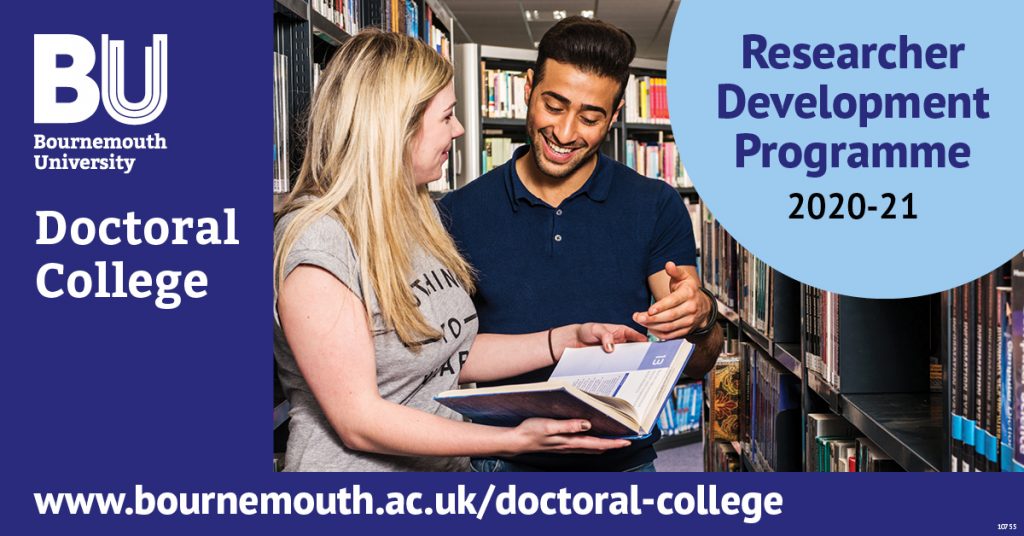
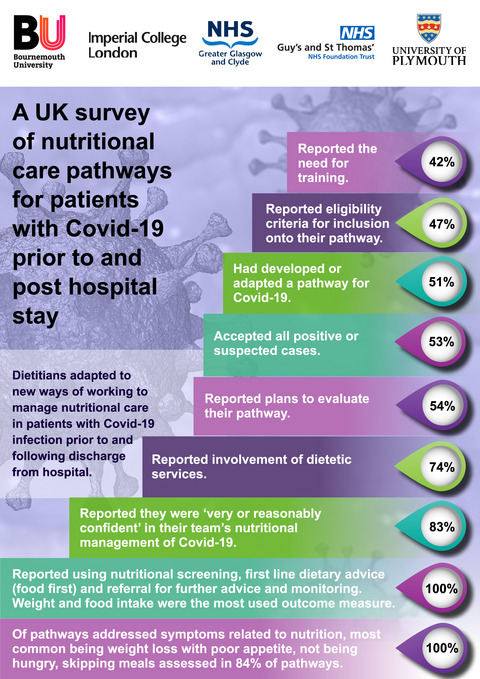

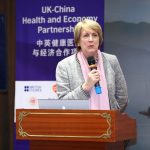
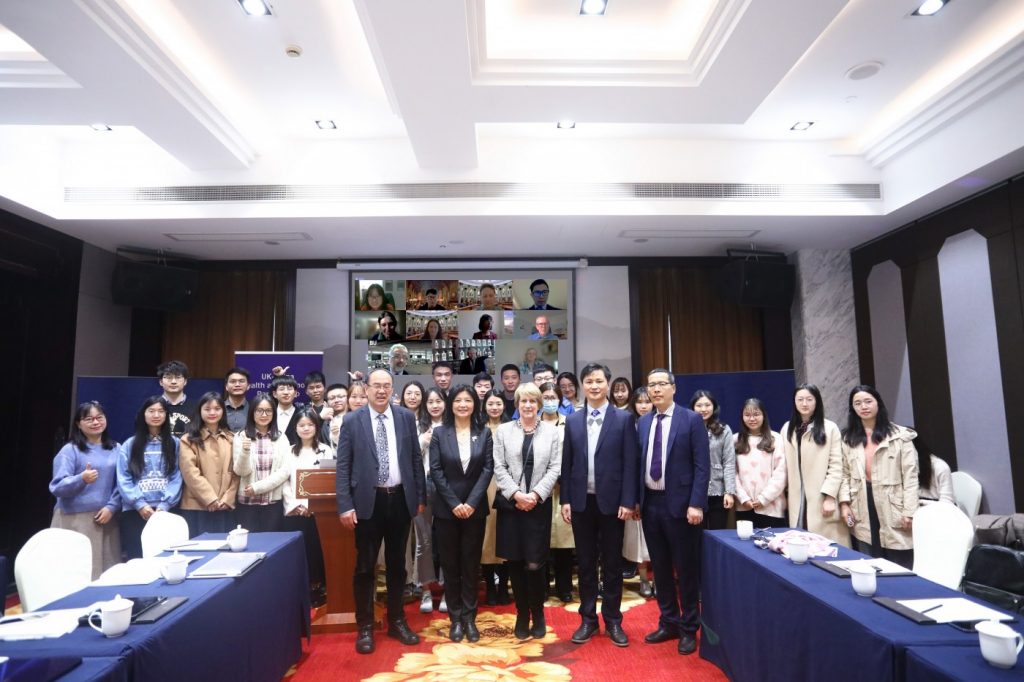

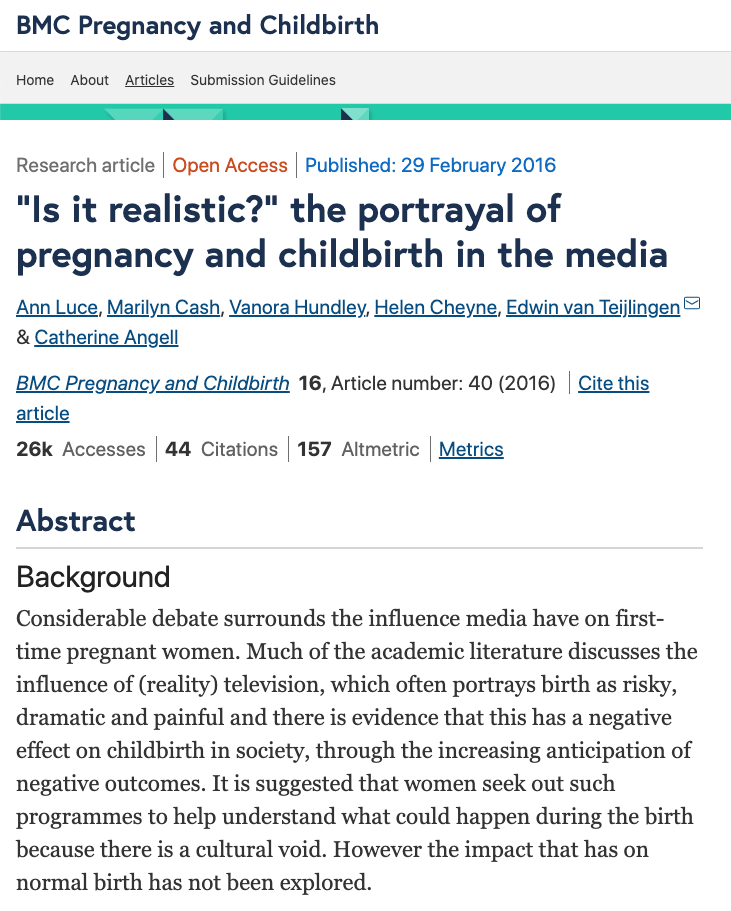

 The RDS Funding Development Briefings occur weekly, on a Wednesday at 12 noon.
The RDS Funding Development Briefings occur weekly, on a Wednesday at 12 noon.

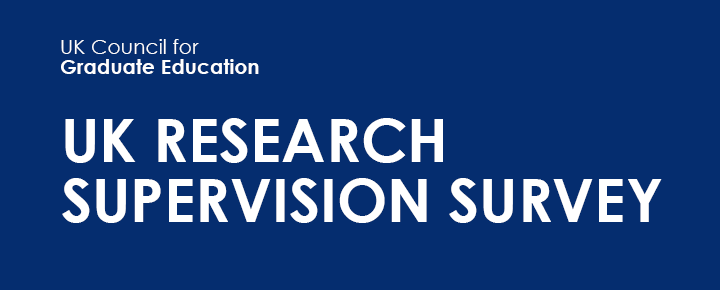





 BUBS Consumer Insights Research Theme based in the Department of Marketing Strategy and Innovation draws together a team of 13 researchers addressing how consumers think, feel, and behave.
BUBS Consumer Insights Research Theme based in the Department of Marketing Strategy and Innovation draws together a team of 13 researchers addressing how consumers think, feel, and behave.










 Beyond Academia: Exploring Career Options for Early Career Researchers – Online Workshop
Beyond Academia: Exploring Career Options for Early Career Researchers – Online Workshop UKCGE Recognised Research Supervision Programme: Deadline Approaching
UKCGE Recognised Research Supervision Programme: Deadline Approaching SPROUT: From Sustainable Research to Sustainable Research Lives
SPROUT: From Sustainable Research to Sustainable Research Lives BRIAN upgrade and new look
BRIAN upgrade and new look Seeing the fruits of your labour in Bangladesh
Seeing the fruits of your labour in Bangladesh ECR Funding Open Call: Research Culture & Community Grant – Apply now
ECR Funding Open Call: Research Culture & Community Grant – Apply now ECR Funding Open Call: Research Culture & Community Grant – Application Deadline Friday 12 December
ECR Funding Open Call: Research Culture & Community Grant – Application Deadline Friday 12 December MSCA Postdoctoral Fellowships 2025 Call
MSCA Postdoctoral Fellowships 2025 Call ERC Advanced Grant 2025 Webinar
ERC Advanced Grant 2025 Webinar Update on UKRO services
Update on UKRO services European research project exploring use of ‘virtual twins’ to better manage metabolic associated fatty liver disease
European research project exploring use of ‘virtual twins’ to better manage metabolic associated fatty liver disease